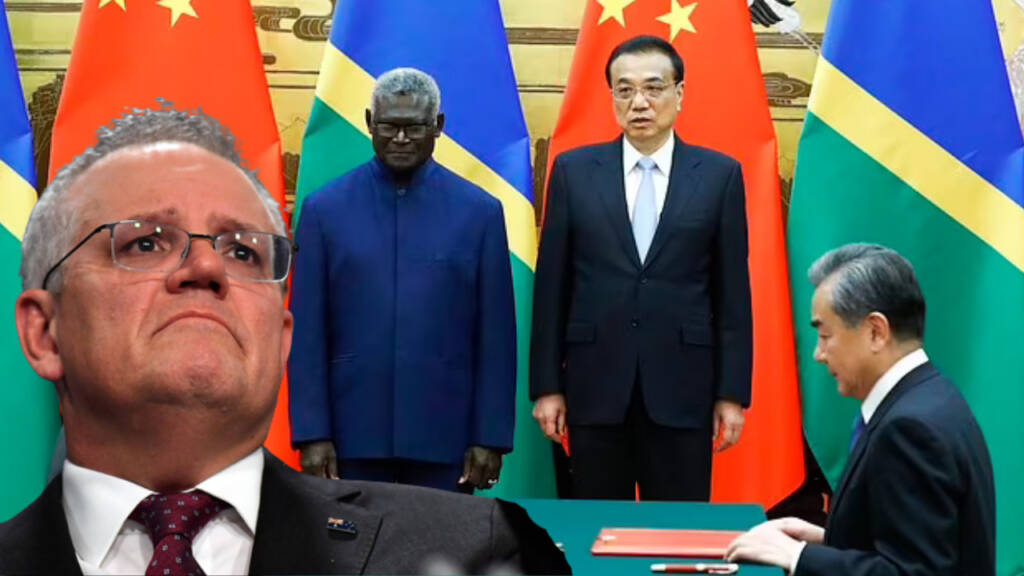China, under its aggressive expansionist policy, is inching closer to reaching a security pact with the Solomon Islands. A leaked draft of the deal has revealed that a military base could be set up by China on the island. This has made the islands’ traditional partners, including New Zealand, Australia and United States, anxious. They are under constant apprehension with China’s increasing presence in the region. Taking note of the rising concerns in the regional capitals, the government of the Solomon Islands has now denied rumors of a military base being developed by China on its soil and termed it as a piece of “misinformation promoted by anti-government commentators”.
A bona fide concern
But the apprehensions among the regional allies of the island nation are inevitable when China is involved in the scene. The world is quite aware of the policies that China follows to create its ‘sphere of influence’. China’s aggressive policy in the South China Sea is quite evident with the communist nation militarizing three islands in the region. Further, considering the present security pact of the Solomon Islands, suspicion is obvious given Chinese involvement in it. The use of vague terms and the ambiguous nature of the text of the draft creates uncertainty in the minds of observers and policymakers in concerned nations.
Under the terms of the draft agreement, China could send police, military personnel and other armed forces to the Solomon Islands “to assist in maintaining social order” and for a variety of other reasons. It could also send warships to the islands for stopovers and to replenish supplies, leading to speculation about the possibility of China establishing a naval base on the islands.
Australia and New Zealand have constantly expressed concerns about the impact on regional security of military cooperation between China and the Solomon Islands. But the government has been defending the new bond as a way of diversifying its relationships on economic grounds and denying any possibility of Chinese military presence on the islands.
Australia’s warning that forced the Solomon Islands to budge
Nevertheless, Prime minister, Manasseh Sogavare appears to comprehend the genuine concerns raised by its long-term friends. However, this came after Australia dropped a subtle warning on the pacific country regarding the country’s expanding strategic ties with China. For instance, Australia’s Chief of Joint Operations, Lieutenant General Greg Bilton had categorically said that the Chinese presence on Australia’s doorstep will impact the country’s military operations in the Pacific, including patrolling patterns and maritime awareness activities. That was a warning for the Solomon Islands that Australia, along with the US, would ratchet up its security operations in the region, which will have a negative impact on the country’s regional security environment.
This warning from Australia was enough to make the island nation budge. Prime minister Manasseh Sogavare, in his recent statements, tried to alleviate the anxiety among Australia and others in the region. He said that his government won’t allow any development of the military base on the islands by the Chinese government.
Also Read: Biden has finally dismantled the anti-China alliance that Trump revived during his tenure
He further added, “Government is conscious of the security ramification of hosting a military base, and it will not be careless to allow such initiative to take place under its watch.” Sogavare said his nation sought only peace and prosperity, citing its foreign policy mantra: “We are friends to all and enemies to none.” He said it wasn’t a secret deal but a sovereign issue.
Though Australia and New Zealand are US allies, the deal doesn’t seem to bother Biden much. He is focused on demonizing Putin and rallying all over the world against Russia. But US allies in the region are apprised of their immediate threat i.e. China.
Also read: China shocks the world by militarising one country after another in the Indo-pacific
